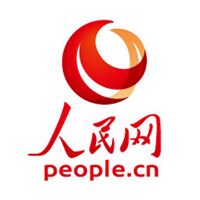Only by starting from the source and putting anti waste throughout the whole process of drug production and circulation can a closed-loop governance be formed and the space for waste breeding be minimized
Nowadays, many families are used to storing commonly used medicines. However, due to irrational drug hoarding, unscientific drug preparation and other reasons, waste caused by expired drugs is relatively common. A survey shows that about 78.6% of households in China have small medicine boxes, but more than 80% of households do not have the habit of cleaning medicine boxes regularly, which results in about 15000 tons of expired drugs a year.
Drug waste will not only increase the burden of medical insurance funds and individual drug expenses, but also easily cause potential safety hazards such as drug abuse and drug pollution. We must take more determined and practical measures to curb it in a timely manner. Not long ago, the National Health Commission and other five departments jointly issued the Implementation Plan for Saving Drug Resources and curbing Drug Waste, which put forward specific work measures and requirements on drug production, clinical medication, drug circulation, publicity and guidance, and waste drug management, and provided policy guidance for curbing waste from the perspective of the whole life cycle of drugs.
It is our fine tradition to practise economy and oppose waste. In recent years, many places are actively exploring effective ways to curb drug waste. For example, Ningbo City, Zhejiang Province, on the premise of ensuring quality and safety, encourages the sale of some drugs in parts to reduce waste from the source; Shanghai upgraded the relevant digital service platform, organized licensed pharmacists and others to take turns in the form of public service, provided online pharmaceutical services, answered citizens' questions about buying and using drugs in a timely manner, and reduced end waste. These measures focus on different links and have enlightenment significance for establishing and improving the system and mechanism to curb drug waste.
It should also be noted that curbing drug waste is a systematic project, involving multiple links such as production, sales and use. It needs to take multiple measures to form joint efforts to plug loopholes and leave no dead ends. From the production side, some drug packaging is not scientific enough, and the drug dose is far more than required for a single course of treatment; From the sales side, the phenomenon of irrational drug use caused by promotional activities such as buying drugs and giving free drugs, and large prescriptions still exists; From the perspective of recycling, unified and standardized collection and destruction channels for waste drugs have not been generally established, and residents lack appropriate channels to deal with the drugs that are not used up. These factors add up to increase the difficulty of governance. Only by starting from the source and putting anti waste throughout the whole process of drug production and circulation can a closed-loop governance be formed and the space for waste breeding be minimized.
To carry out the whole chain governance, we should start with details, do a good job in supporting policies, enhance operability, and mobilize the enthusiasm of all aspects. For example, the implementation of drug unbundling needs to consider the interests and needs of pharmaceutical enterprises, medical institutions, pharmacies and consumers, and refine the design of relevant systems. Which drugs can be disassembled? How to disassemble parts? How to ensure drug quality and patient medication safety? Only by answering these questions can we form a long-term mechanism and produce good policy effects. Another example is to guide consumers to purchase drugs rationally and prepare drugs scientifically, which is essential to reduce waste, but it requires careful guidance of drug use services. It is advisable to explore some incentive mechanisms, encourage community medical institutions and pharmacies to provide pharmaceutical services, or let family doctors help contracted residents in need to sort out their home medicine boxes during follow-up visits. At present, online drug sales have entered the fast lane, and the difficulty of supervision has further increased. It is necessary to do a good job in system convergence, strengthen detail management, and constantly enhance the anti waste awareness of the whole society.
China is a major industrial pharmaceutical country in the world, with complete industrial chain, and the number of pharmaceutical products and production capacity ranking top in the world. However, we still need to eliminate waste and improve the utilization rate of drugs. This is of great significance for improving the ecological environment and better maintaining people's health. Strengthen the awareness of the whole chain governance, focus on each link, and work hard for a long time. We will be able to better ensure the rational drug use needs of the masses, while minimizing waste.
People's Daily (February 19, 2024, Version 5)
(Editor in charge: Wei Jia, Qu Yuan)
Share to let more people see




































